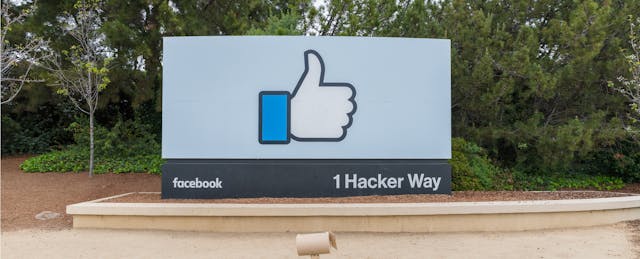Facebook is teaming up with community colleges as part of a nationwide effort to teach digital-literacy skills to small-business leaders and others in cities.
This week the company announced that it will add 17 more community colleges as partners by the end of 2018, for a total of 20 partnerships. An example of an already existing community college partnership is with Central New Mexico Community College, where Facebook has been working on a new Digital Marketing Certificate program, and has offered 32 scholarships for students to attend the institution’s “Deep Dive Coding Bootcamps.”
Today, Facebook has announced that it has added Bunker Hill Community College and Roxbury Community College as partners, both in Boston. Facebook has not yet decided the nature of those partnerships. Parisa Zagat, policy programs manager at Facebook, says the partnerships will involve working with the community colleges’ current offerings and resources to add content from Facebook. The social network is also working with another company, Entangled Solutions, to establish the partnerships and work with the institutions to create curriculum. Facebook has yet to select the remaining new colleges for the program.
A Facebook spokesperson tells EdSurge that each partnership with a community college will be different—for instance, not every partnership will feature a certificate program, as in the case of Central New Mexico Community College, but each will involve teaching students digital marketing.
Another facet of Facebook’s work in education is what it calls the “Community Boost” program, which has partnerships with local organizations to help people learn digital skills and help small businesses grow. The company has visited 30 cities, and plans to run events in 20 more by the end of the year.
Amy Brooks, Facebook’s director of business education, says among the things people will be able to learn through the Community Boost program is how to build an online customer base and how to get a business online. She adds that much of Facebook’s education strategy focuses on economic enablement and job growth, as well as supporting small businesses with the skills “they need to grow.”
In addition to the in-person community college partnerships and the Community Boost program, Facebook has also put parts of its education initiatives online. For instance, “Learn with Facebook” consists of free online trainings that teach people digital marketing skills, such as branding and consumer behavior. The Facebook spokesperson adds that the curriculum “speaks to broad marketing concepts and calls out other platforms,” including Google, Twitter, LinkedIn and Youtube. She also notes that there’s a specific curriculum for early-stage tech entrepreneurs who want to learn how to make a business plan, build a product and scale a business. “Learn with Facebook” is coming to the US in the fall (it already exists in Germany and India).
The move is part of a trend of Silicon Valley companies trying to shape curriculum around their products.
Take Amazon, which gifted its Echo smart speakers to a subset of Arizona State University students in August 2017. That push included the university adding “‘a bit’” of voice technology curriculum to three existing courses that semester. Not long after, in October, Ohio State announced that it would purchase iPads and associated items for a discounted rate from Apple. That push came with plans for an iOS design laboratory, and opportunities for students to learn Apple’s Swift coding language. More recently, Google.org gave Southern New Hampshire University a $1 million grant to “explore soft skills assessments for youth-individuals aged 16-24 who are not enrolled in school and are either under or unemployed.”
Sean Gallagher, who researches the future of university credentials at Northeastern University, thinks Facebook wants and needs small business owners, and others, using its tools. The more people are versed in these technologies, he says, the more it helps Facebook build its business. Its likely looking for more people who will use its advertising and marketing tools, which make up the core of its business model. Gallagher also brings up the company’s reputation, which has come under fire because of Cambridge Analytica and user privacy.
“It seems to be about developing the workforce and developing a customer base,” he says. “But in this moment where Facebook is in the midst of a campaign, globally, to restore their reputation, these kinds of investments and partnerships in the community are probably constructive in terms of positioning the company as one that’s a force for good rather than sort of an evil technology company.”


